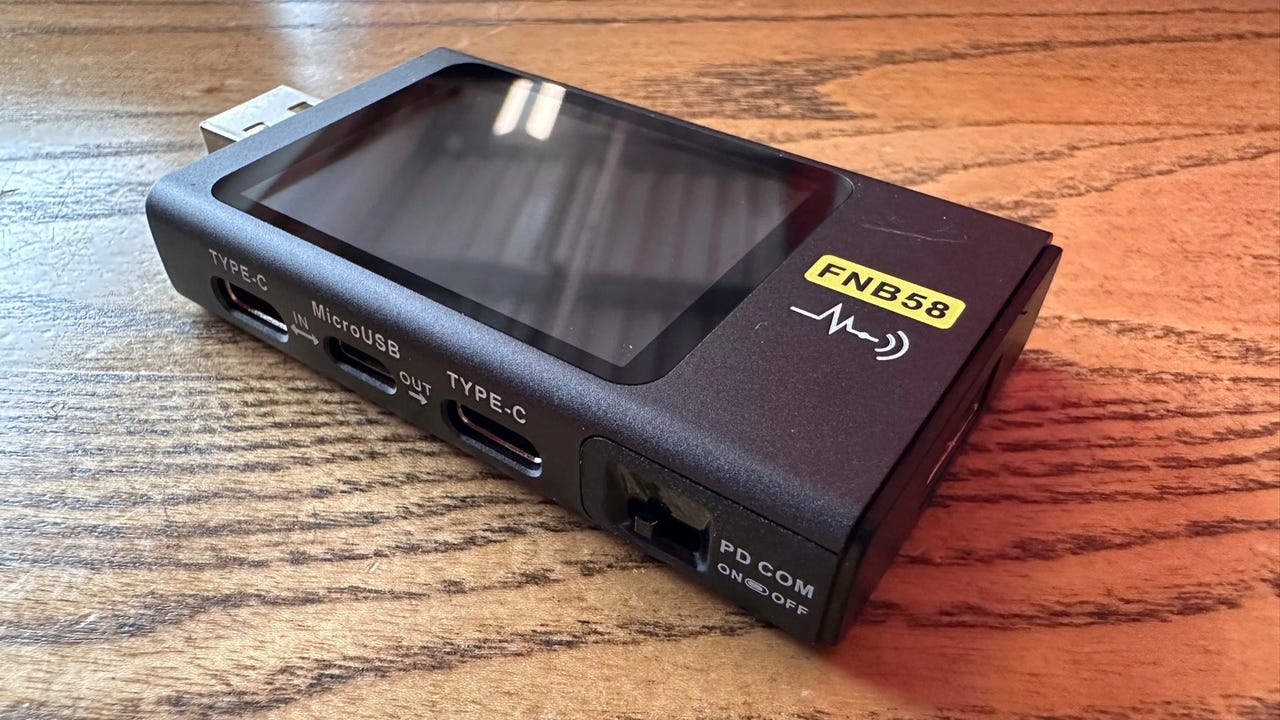'ZDNET Recommends': What exactly does it mean?
ZDNET's recommendations are based on many hours of testing, research, and comparison shopping. We gather data from the best available sources, including vendor and retailer listings as well as other relevant and independent reviews sites. And we pore over customer reviews to find out what matters to real people who already own and use the products and services we’re assessing.
When you click through from our site to a retailer and buy a product or service, we may earn affiliate commissions. This helps support our work, but does not affect what we cover or how, and it does not affect the price you pay. Neither ZDNET nor the author are compensated for these independent reviews. Indeed, we follow strict guidelines that ensure our editorial content is never influenced by advertisers.
ZDNET's editorial team writes on behalf of you, our reader. Our goal is to deliver the most accurate information and the most knowledgeable advice possible in order to help you make smarter buying decisions on tech gear and a wide array of products and services. Our editors thoroughly review and fact-check every article to ensure that our content meets the highest standards. If we have made an error or published misleading information, we will correct or clarify the article. If you see inaccuracies in our content, please report the mistake via this form.
This powerful, pocket-sized gadget is perfect for all your USB troubleshooting needs

Ports galore
The other day I looked at a $25 USB meter that was perfect for those who want to test if USB ports and devices such as chargers and power banks are working properly. It's a great tool for those dabbling with gadget repairs.
Also: You're using super glue all wrong
But if you're more serious about diagnostics and repair, and have a slightly bigger budget, then you should get your hands on a full-blown USB multimeter packed with all sorts of features, from the ability to log data to identifying whether your cables support high-power charging.
This tool is the Fnirsi FNB58 USB tester.
Fnirsi FNB58 USB tester tech specs
- 2.0-inch full-color ultra-wide viewing angle TFT LCD display
- Integrated USB-A, Micro-USB, Type-C ports
- Test voltage: 4 - 28V
- Test current: 0 – 7A
- Test power: 0 – 120W
- Supports trigger detection of various fast charging protocols, QC2.0/QC3.0 trigger, FCP/SCP trigger, AFC trigger, PD2.0/3.0 trigger, VOOC/WARP trigger, Super VOOC 1.0/2.0 trigger
- E-Mark USB cable chip reader
- DASH Cable data reader
The FNB58 is an all-in-one USB tester for USB-A, microUSB, and USB-C ports. You can plug into a USB-A port directly, and to microUSB and USB-C using cables.
Also: The 5 best USB hubs
The display is a bright, crisp, clear 2.0-inch TFT LCD display, beating hands-down many other USB multimeters on the market, and making it much easier to read the information being displayed.
The crisp, clear, colorful display is very user-friendly
With a built-in orientation sensor, the FNB58 automatically adjusts the display to accommodate the device's orientation. The tester features an intuitive rocker switch and a back button for straightforward navigation.
The buttons are kept to a minimum
But this simplicity hides a lot of power, and I suggest downloading and getting real familiar with the user manual, because there's a lot to this gadget and it's easy to find yourself facing some scary-looking warnings.
Beware the scary warnings!
One feature of the FNB58 that I really like is the real-time voltage and current waveform screen that gives me an at-a-glance idea of what the meter is sensing, which can dramatically speed up a diagnosis. For intermittent faults, the meter can log up to 9 hours of waveform data.
The waveform display functionality is awesome
Another useful feature is the ability to read E-mark chip data found in higher-quality USB-C cables. This chip allows the cable to communicate with the devices it connects to, providing information about the cable's capabilities, power capacity, and supported features.
Reading the capability of USB-C cables from the E-mark chip
The Fnirsi FNB58 is a powerful, versatile, and, at just over $50, affordable USB test meter. Not only does it give you the usual volts/amps power information, but can see this information as a waveform, and even do multi-hour data logging. It can read E-mark and DASH cable data, carry out cable resistance tests (this can uncover internal cable damage that is otherwise invisible), display what charge protocols are being used, and much more.
Also: How to unlock the Flipper Zero's true power
That's quite a list of features, and it's far from complete.
The display is one of the best I've seen on a USB meter, and the user interface is simple. But there's a lot more to this meter, and I recommend reading, re-reading, and then reading again the manual, and spending time experimenting with the meter to get used to what it can do and what to expect from it.
If you want a cheap meter, the KJ-KayJI 2 in 1 USB tester is a good, sub-$25 option, but if you want more functionality and capability, the Fnirsi FNB58 is a huge step up for little more than double the money.
